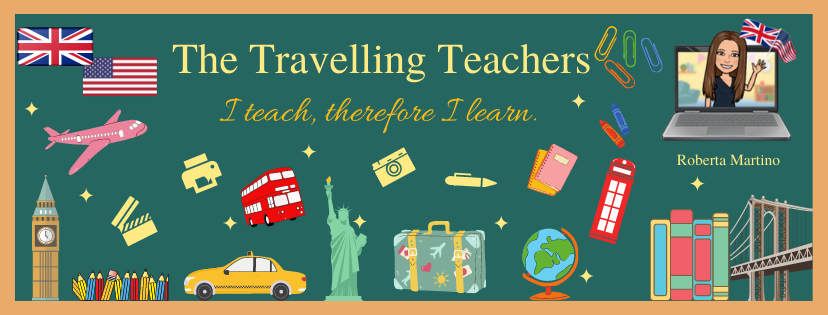Summer is usually holiday time and some of us are planning a journey. We often consult a map to decide which places we want to visit and to define our route. Using digital maps before, during and even after our journey, can be great fun!
These are some free map tools that can make our trip more enjoyable and can also be very useful as summer tasks for our students!
(If we are not planning a trip, just imagining where we would like to go in the future could be very amusing and stimulating.)
BEFORE LEAVING

Before leaving let's have a look at the time zones. With the Time Zone Converter map you can easily convert
a time in one location to the time in another location just with one click.

If you want to know how long your journey will take, you can use the Trip Calculator Map. Simply enter
your average speed and start clicking. You can know how long your
journey is and how long it will take to complete.
Now, a very useful tool to compare different cultures.
 If you don't know exactly where to go, if you are wondering which country is right for you, try Ifitweremyhome
If you don't know exactly where to go, if you are wondering which country is right for you, try Ifitweremyhome.
If we were not born in our country, what would our life be like?
This tool is a gateway to understand life outside our country. You can compare living conditions in your own country to those of another.
Some examples:
DURING YOUR JOURNEY
Mapskip is a
very original tool. The world is a canvas for your own stories and photos. You
start from a map, you click on the place you like, you add your mark and write
your story about that place. You can tell your adventures adding your
pictures, links or videos. It could be great to update your journey in real time!
My example about the town where my school is located:
 Tourbuilder is a fantastic tool! You have the whole world to put your stories
on! It allows you to write your stories directly in the various
countries of the world where they are set.
Tourbuilder is a fantastic tool! You have the whole world to put your stories
on! It allows you to write your stories directly in the various
countries of the world where they are set.
You will
need to install the Google Earth Plugin (it only takes a couple of minutes), if
you haven't already.
You can add your photos, videos or links to describe the places you visited.
Tour Builder takes track of all your movements on the map and this is the final
result. Watch my brief example about my Cambridge experience! Choose
"enter Street View" on the map to watch 3D the places I saw!
My example.
The following is a very good site suggesting some other mapping tools for schools:
.jpg) STUDENTS' TASK
STUDENTS' TASK
Describe your real or imaginary journey using the above map tools. Write some information about the country you are going to visit, the time zones, the distances between a place and another and describe some cultural differences between this country and your own.
Then, with Mapskip or Tour Builder add some pictures, videos or links to all your destinations.
HAVE A NICE TRIP!
.jpg)
 For many of us it's time for travelling, some are going abroad and need to revise some vocabulary and expressions...
For many of us it's time for travelling, some are going abroad and need to revise some vocabulary and expressions...
.jpg)

.jpg)
.jpg)


.jpg)

.jpg)
.jpg)

.jpg)
.jpg)






.jpg)




.jpg)
.jpg)
.jpg)
























